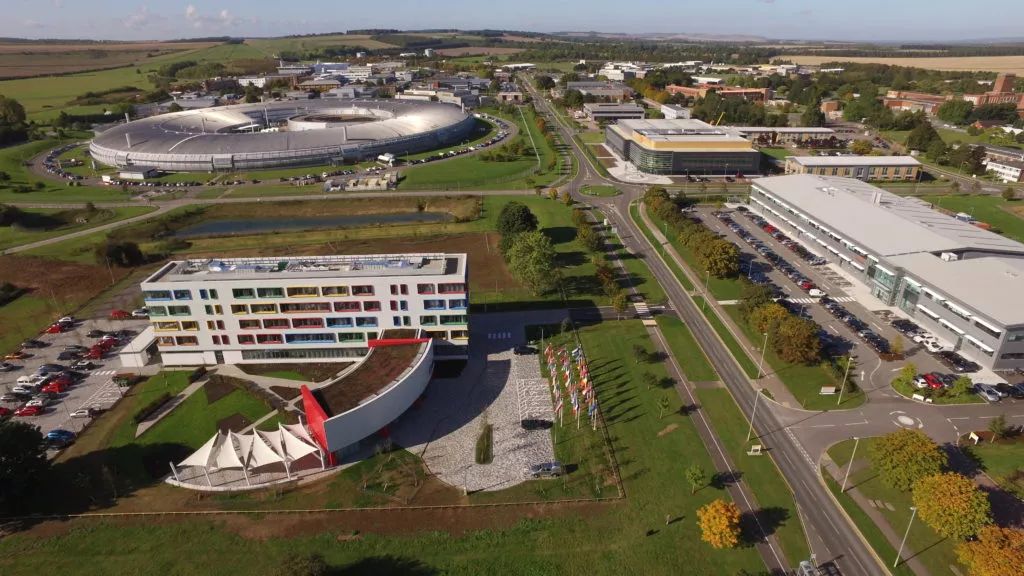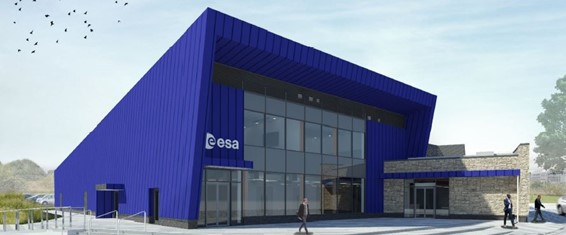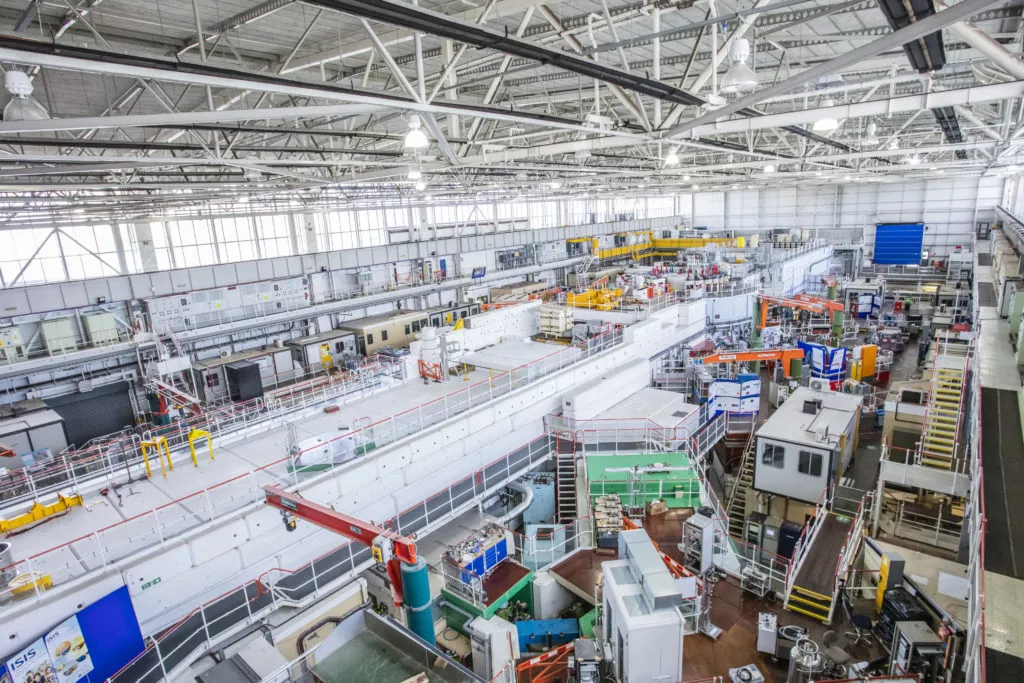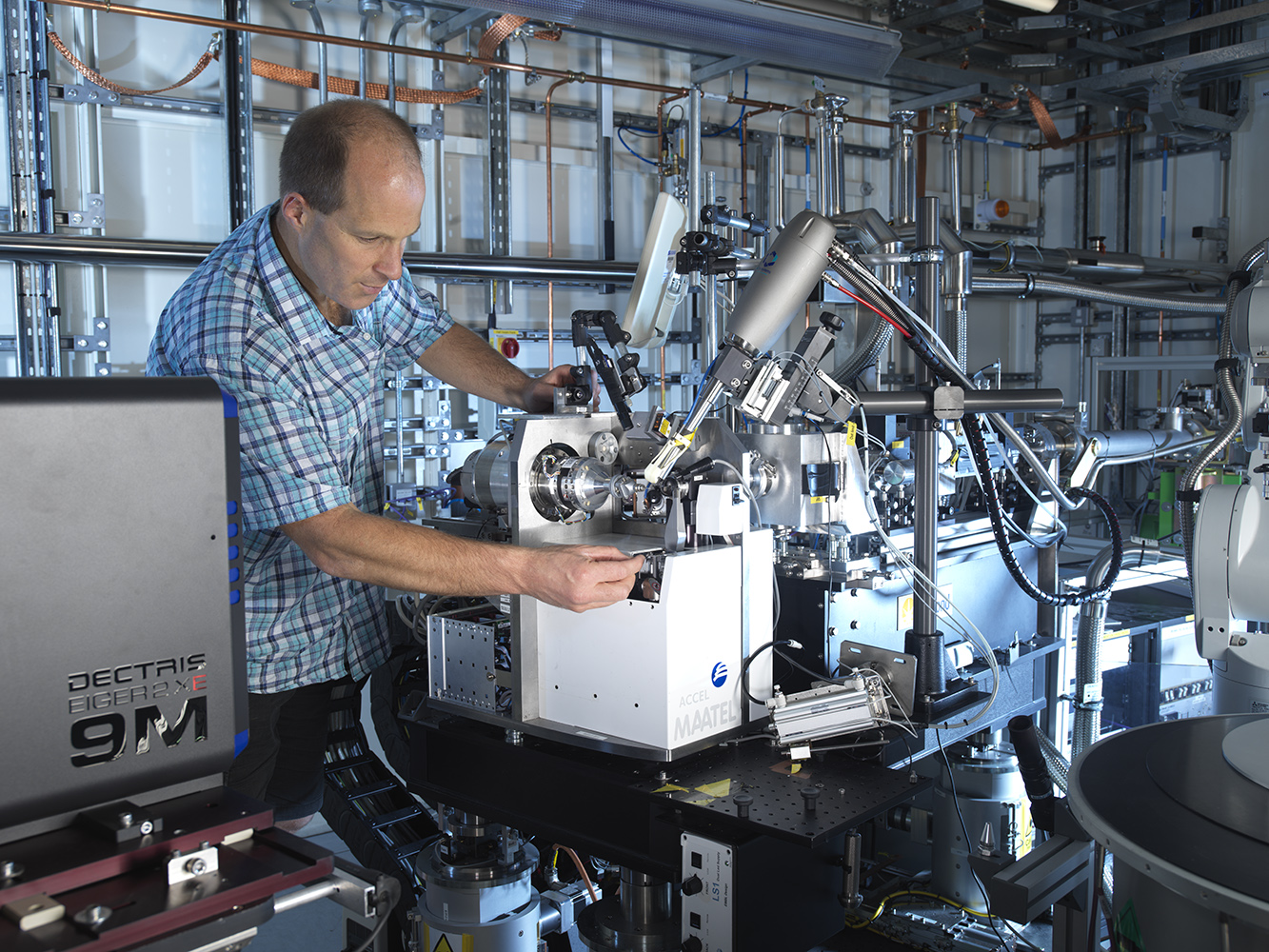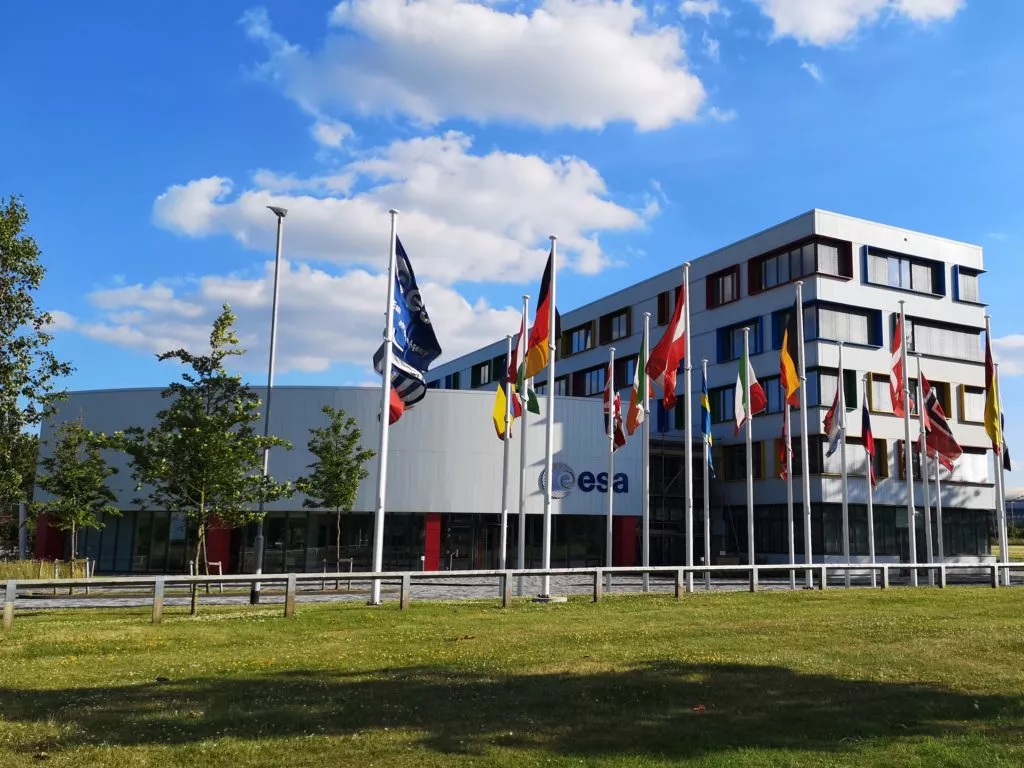
ESA’s European satellite and space telecommunications centre (ECSAT) is the UK’s gateway to space. From exploring the outer-limits of our universe to improving satellite communications and providing data to combat the climate emergency back on Earth, ECSAT are committed to expanding Europe’s space capability for the benefit of all mankind.
What is it?
Established in 1975, the European Space Agency works together with its 22 Member States to push the frontiers of science and technology and ensure that Europe continues to be a major player in space development. ESA’s European satellite and space telecommunications centre (ECSAT), established at Harwell in 2009, is dedicated to business applications and boosting investment into space technology. The centre plays an important role in monitoring meteorological events and climate change and shares data with a range of institutions in the life sciences, physical sciences and technology sectors.
ECSAT at Harwell is home to ESA’s programme of Advanced Research in Telecommunications Systems (ARTES) which supports the development of cutting-edge satellite technology and space applications for “down-to-earth” products and services. It’s an active member of Harwell’s Space cluster and benefitting from the open campus culture, which promotes cross-sector collaboration between science and industry.
Boosting innovation is at the heart of ECSAT: many of the product development projects are initiated through public–private partnerships with world-class satellite operators. The ESA Business Incubation Centre (BIC) UK also on campus, was designed to nurture start-ups as they transfer off-world technologies into viable business concepts on the ground. To date ESA BIC has helped 60 companies to launch, with around 10 new candidates joining each year.
In addition, the Earth Observation Climate Office plays a vital role in monitoring climate change by gathering vast datasets to share with our global partners and further our understanding of the most pressing issues of today. Always focused on the future, it’s preparing to carry out research on extra-terrestrial material at Harwell, and is currently developing low-energy, exploration technologies.
Latest events
-
Photography Workshops for Young People
19th Oct
10:30 – 16:00 | Quad Two, Rutherford Avenue, OX11 0DF
As part of the Light Project and the RSG Earth Photography Exhibition at…
-
RAL Lecture: Accelerating Scientific Discovery with Quantum Computers
8th Oct
14:00 – 15:00 | R22 Pickavance Lecture Theatre and Zoom Webinar
Come along to R22 Pickavance Lecture Theatre or join online to hear from…

